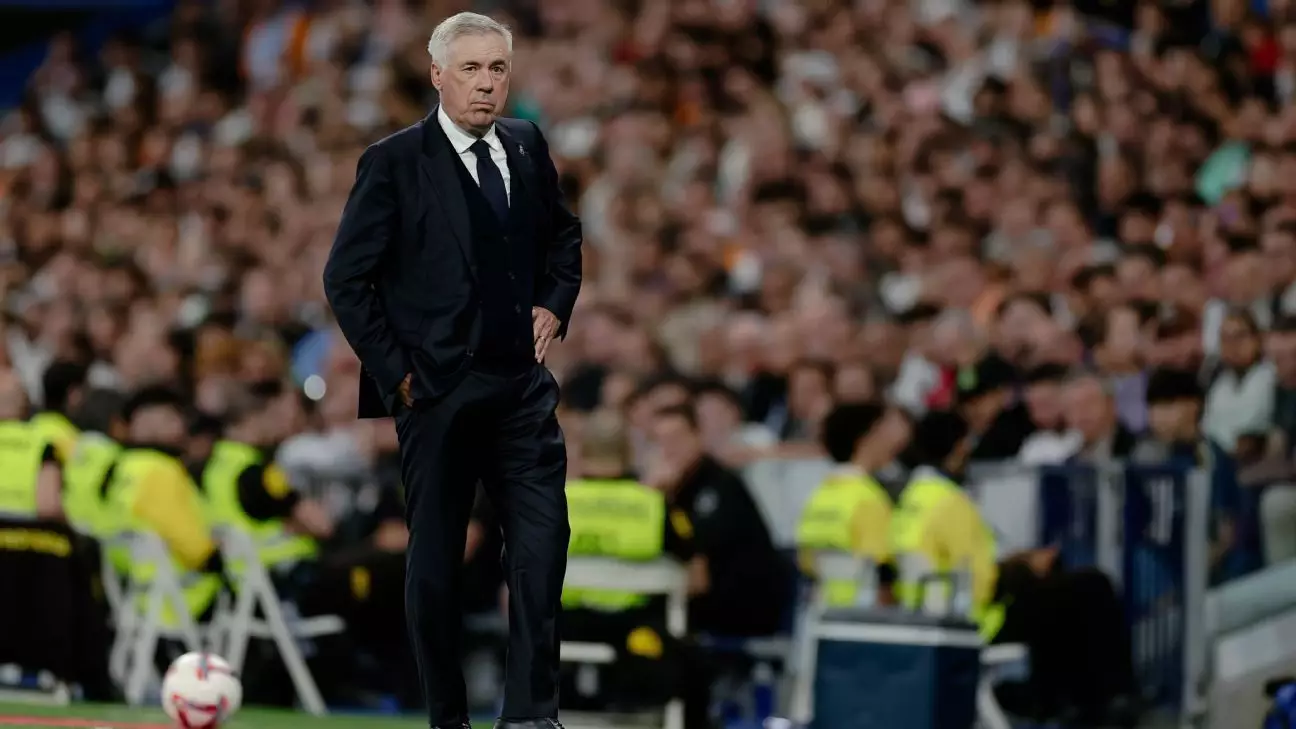The recent flash floods that devastated Valencia, leading to the tragic loss of over 200 lives, have raised profound questions about the intersection of sports and societal responsibilities. Real Madrid’s head coach, Carlo Ancelotti, expressed his deep sorrow regarding these tragic events, suggesting that all football activities in Spain should have been suspended. This sentiment resonates with many in the football community who feel that in times of tragedy, the joy and celebration associated with sports must take a backseat.
The floods that struck Valencia are marked as one of the most significant natural disasters in recent Spanish history, leaving countless homes damaged and disrupting vital transport networks. In response, LaLiga made the decision to postpone two crucial matches, including the one featuring Real Madrid at Valencia. However, the decision to allow eight other matches in Spain’s top divisions to proceed has sparked debate among players, coaches, and fans alike. The apparent inconsistency has raised concerns about the priorities of football organizations in the wake of community crises.
Ancelotti’s remarks shed light on the emotional landscape faced by players and clubs during such trying times. His assertion that “talking about football is difficult” underscores the challenges that athletes encounter when balancing professional obligations with their personal empathy for those affected by tragedy.
The contentious atmosphere surrounding the continuation of football matches was echoed by multiple coaches across the league. Atlético Madrid’s Diego Simeone articulated the view that playing under such circumstances did not make sense. This raises the essential question: does professionalism in sports sometimes overshadow the urgency of compassion?
Both Ancelotti and Lucas Vázquez, a player under his guidance, highlighted their limited power in determining whether matches should take place. “Our opinion is zero,” Vázquez stated, indicating that professional athletes must often comply with decisions made by higher authorities, even if those decisions conflict with their moral compass. The reality that football, while a form of entertainment, must sometimes take a backseat to societal needs is a poignant point that merits further evaluation.
The beautiful game, often described as a unifying force, must recognize the gravity of circumstances when communities are in distress. The collaboration between LaLiga and the Red Cross to raise money for the flood-affected populations demonstrates a recognition of this responsibility. Nevertheless, the scheduling of matches amidst such calamity raises questions about the integrity of these gestures. Could the genuine spirit of support be better served through a complete standstill in professional football rather than token efforts?
Moreover, Ancelotti’s acknowledgment that discussions around football seem trivial in the light of human suffering should resonate deeply within the sports community. It illustrates a pressing need for a culture in football that embodies sensitivity to surrounding issues. The responsibilities of clubs extend beyond the pitch; they must also encompass a commitment to societal impact, especially in times of hardship.
The events unfolding in Spain reflect a broader need for sports organizations to prioritize humanity over competition. As the country grapples with its losses, the football community must step back and assess the appropriateness of continuing as usual. While players and coaches are trained to maintain professionalism and focus on their roles, tragedies like the Valencia floods challenge them to reflect on their influence and responsibility within their communities.
In advocating for the suspension of matches during times of crisis, leaders like Ancelotti spark essential conversations about the interplay between sport and society. As LaLiga proceeds with its initiatives to assist affected communities, it would be wise for the sport to actively create a framework wherein sensitivity and empathy are as valued as competition and professionalism. Ultimately, football’s legacy should reflect not only the triumphs on the field but also its capacity for compassion, especially when it matters the most.


Leave a Reply